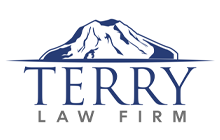Planning for the future is never easy. There’s no telling what might happen to you at any point in time, especially later in life. That’s why you should consider all the options you have now with the help of an estate planning attorney. If you have an IRA through your employer, it’s important to know how to choose the right beneficiary so that it doesn’t get into the wrong hands upon your death.
Using Money from a Retirement Account
You are required to use money from a retirement account, such as an IRA, when you reach a certain age. For example, the rule right now is that as of April 1 after you turn 70.5, you must begin withdrawing money from your IRA. However, you do not have to empty your account. Instead, there are rules as to the minimum amount you must withdraw each year. Should you keep money in the account, it can be bequeathed to the person of your choosing upon your death.
Naming a Beneficiary
There are five options for you to name a beneficiary when performing IRA inheritance planning and these include the following:
- Your spouse, if you are married
- Your child
- Your grandchild or another individual
- A trust
- A charity
You can also name any combination of the above as beneficiaries of your IRA.
Naming a Spouse as a Beneficiary
The majority of married people name their spouse as the beneficiary of their IRA for two main reasons: the money can be used to help the surviving spouse go on with life and the rollover option for spouses can offer more years of tax-deferred growth. The spousal rollover rule allows your surviving spouse to rollover your IRA into their own IRA if they are under 70.5 years of age at the time of your death.
Naming a Child, Grandchild, or Other Individual as a Beneficiary
People name a child, grandchild, or another individual as a beneficiary when they believe their spouse will die first, if they are not married, or if one spouse already has plenty of assets to help them through life after their spouse’s death death.
Tax-deferred growth can still occur in this situation since the beneficiary will be of such a young age that the spousal rollover option will not be required. There is a disadvantage to this option as naming one person the beneficiary can destroy the planning you performed. The individual can withdraw all of the money and spend it as he or she pleases.
Naming a Trust as a Beneficiary
Creating and naming a trust as the beneficiary for your IRA is the best option for those who want to have total control over tax-deferred money after death. The reason for this is that all of the proceeds of the IRA will be paid into a trust that has explicit instructions as to how the money is to be used and by whom. The proceeds of the IRA are not paid to an individual when a trust is named as the beneficiary.
Naming a Charity as a Beneficiary
Should you wish to leave money to a charity when you die, choosing an IRA is the best option for multiple reasons. One such reason is that the charity will receive the money without paying taxes on it. Another reason is that the IRA will not be included in your estate when you die, which means the amount of money your family will have to pay in estate taxes is reduced
Call an Estate Planning Attorney Today
IRA inheritance planning is an important part of any estate plan. The experienced and trusted team at The TERRY LAW FIRM can answer all of your questions and guide you through the process of IRA inheritance planning. Call our office at (253) 299-6800 to schedule a consultation with a member of our team today.

